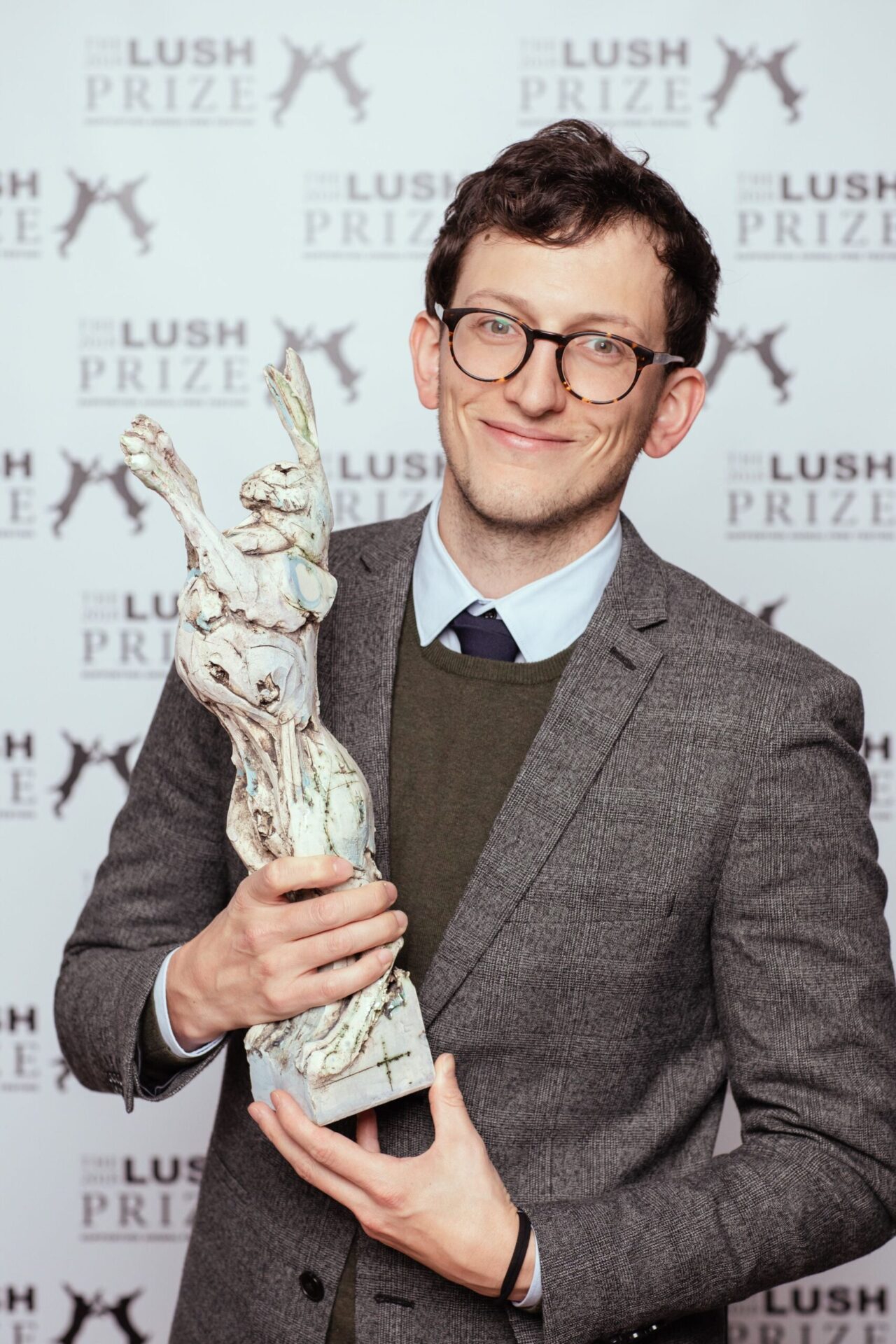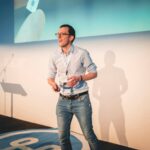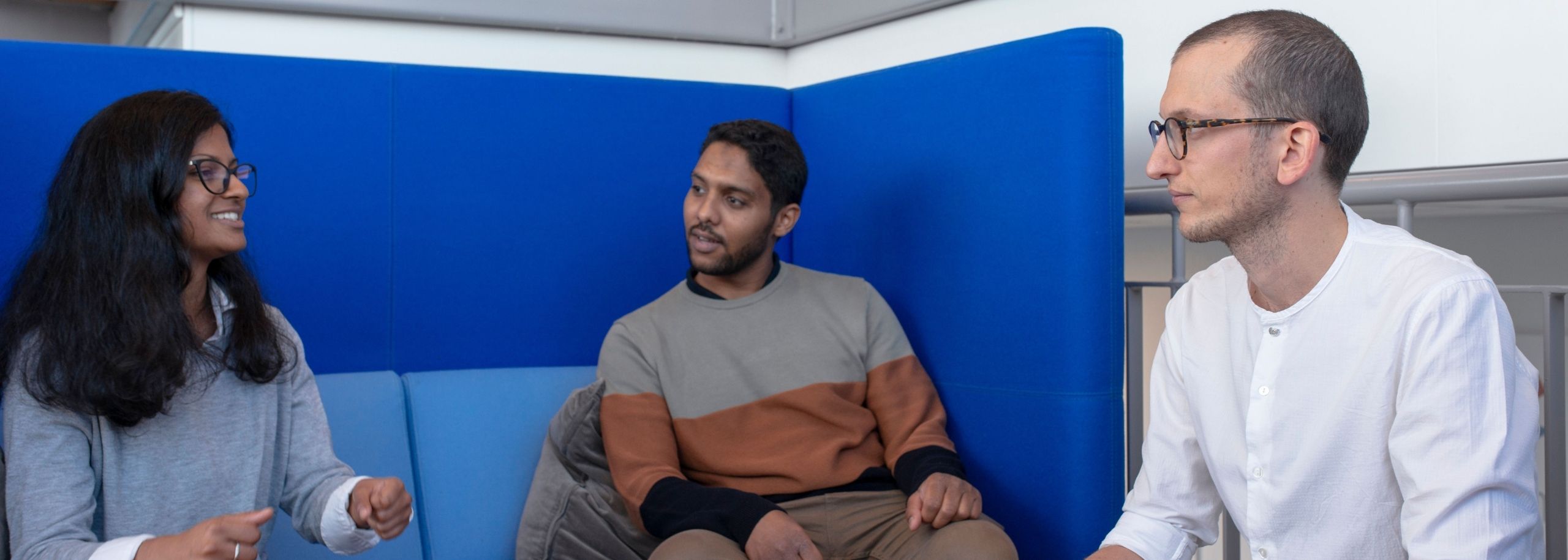In this recurring section “Drijfveren” scientists tell what motivates them to go against the current. This time it is up to Nikolas Gaio, Chief Technology Officer and founder of BI/OND.

Nikolas Gaio wins the Lush Prize in the category Young Researcher in 2018.
Nikolas inspires us, and more importantly, others. He proves that animal-free science has the future. We feel honored that he made time to answer our pressing questions about him and his company:
Can you tell a bit more about what BI/OND does?
“Bi/ond is a start-up aiming at empowering biological innovation by engineering microchips through nourishing, stimulating and monitoring cells. At Bi/ond we believe that a future without animal testing is possible, and OOC (Organ-on-chip) technology is working on providing more accurate and cruelty-free models.
Organ-on-chip is a small replica of a human organ composed by human cells on a computer chip, that can be used to test new medicines and to have a deeper understanding of the phenomena in our body. The accuracy and success of this technology will be the result of joint efforts between research, industry and associations such as Proefdiervrij.
Join our open call: #OOCtransition
This is why, together with associations we are launching a call for researchers in the OOC field. This initiative aims to promote and accelerate the development of OOC models with the potential to reduce and replace animal testing.
What motivates you to stimulate animal-free research?
“Performing research in the bio-tech field means having tremendous responsibility over the accuracy of the results. We believe our work has a direct impact on people’s life, so we need to make sure tests are reliable, reproducible and cost effective.
Indeed, animals are very different from human beings: the differences in terms of anatomy, metabolism, cells and immune systems make them poor models for testing drugs intended for human beings.
After years of research in field, animals tests have shown several limitations. Even though we share with them a lot on many levels (such as intelligence, empathy, pain), animals are very different from human beings. Indeed, animals are very different from human beings: the differences in terms of anatomy, metabolism, cells and immune systems make them poor models for testing drugs intended for human beings.
Currently, more than 90% of drugs that pass animal tests fail in human clinical trials. This implies that drugs that pass animal tests are not necessarily safe, and need many more steps before they can be released.
Moreover, animal tests are unethical and require the loss of an incredible number of lives.
What do you think animal-free research will look like in 10 years’ time?
“Currently, with OOC we can create a small living and dynamic replica of a human organ made of human cells and a microfluidic chip. The OOC field has a huge potential to achieve – or at least getting close – to the complexity of a living body.
Indeed, the human body is extremely complex, we can learn from it and aspire to develop systems as complex as that one day. That’s basically what we are trying to do in the OOC field. We are bringing chip technology a step further by borrowing some new and extremely complex components from the human body.
By being replicating small portions of the human tissue, we will be able to test the effect of medicines on each body and enable personalised cures. Currently, most drugs are tested only on white, middle-aged man which are just one part of the world population. People with different needs, ethnicities and genders are forced to take medicines that are not designed nor tested on them. OOC technology and personalised medicine would provide a more democratic and ethical solution for both humans and animals.”
Our hope is that one day organ-on-chip would become the new norm and animal testing won’t be an option anymore.

Photo of Nikolas Gaio (received from him)

